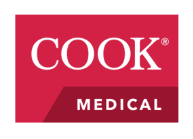We started working with Cook Medical in 2020, a challenging time due to the global pandemic. They were keen to start generating impact across the business by training green belt practitioners, who would deliver improvement projects across their business, together with equipping leaders to support the improvement activities.
They also wanted to upskill their central CI team to be able to deliver yellow and green belt training themselves, enabling them to ‘own’ the academy and roll out the approach across the wider business.

Our Academy approach offers sustainable improvement capability training for our clients. Learning is based around developing the competence, confidence and motivation of individuals and teams – the hands, the head and the heart. This is done through a combination of training, coaching and mentoring - enabling delegates to practice their new skills in the workplace and solicit feedback. Training is aligned to 10:20:70 model – 10% classroom training, 20% experiential learning through coaching/ mentoring and 70% application in the workplace.
Accreditation is provided through Cardiff University’s Lean competency system. The training curriculum was designed to deliver the key competencies identified as priorities for the organisation. When it became clear that face-to-face sessions were not going to be possible, we were quick to pivot to a virtual learning approach, designing engaging facilitated sessions to deliver the theory, and encourage the delegates to apply the concepts to their work environment through discussions and breakout exercises. Training was delivered through 12 modular sessions (typically 3-4 hours) including pre-work (e.g. reading or completing short exercises) and post training activities.
Six 1:1 coaching sessions were held with each delegate to review learning, and assist in their application in the workplace. Finally, assessment was carried via multiple choice tests and written assignments.
Green belt skills training which commenced in 2020 was based around the DMAIC framework (Define, Measure, Analyse, Improve, Control), with training materials and a DMAIC roadmap customized to meet client needs. Each delegate starts the training program with a clear problem/opportunity (their project) which is aligned to strategy and impacting business performance. Coaching sessions help the delegates to apply DMAIC principles to their project and deliver impact in their work area.
Training has included CI and operational staff, support functions such as Finance and HR, as well as senior leaders (e.g. a green belt project was led by the Global Supply Chain Project Manager and sponsored by the Global CI Director with input from Senior Executives). This high level of commitment from the Leadership team sent out a clear message that Improvement activities are for everyone, not just those on the shop floor.
During 2021 we worked with the the team to develop white and yellow belt training courses, and to develop CI skills coaches and trainers to support the roll-out to a wider audience. The CI team are now delivering 100% of this training
successfully, and candidates are progressing to accreditation.
During 2022 we are developing Black belts from the CI team to act as internal trainers and coaches. As well as more advanced CI skills, the people skills and behaviors required to drive effective change are a key element of the program. This cohort is currently being trained to deliver green belt training, with a target of moving from 100% S A Partners training to 50% Cook by the end of 2022. The training pathway for CI trainers and coaches is customized based on delegate competence and confidence, with in-house trainers and coaches fully supported and accredited to undertake delivery.
Leadership training is based around our Leadership Development model but was customized to meet client needs. During 2020 Level 1 training focused on the key skills needed by people leaders to promote personal and team development, and included personality types, situational leadership, effective use of ‘voice’ and change leadership, based on our Leadership Development model.
The output for this work was a work systems map setting clear targets and accountabilities for each leader based on business goals. Leadership delegates were the supervisors of each of the green belt project leads, allowing Leaders to provide visible support to the ongoing CI projects.
During 2021-22 as well further continuing Level 1 cohorts, Level 2 training was delivered to leaders focusing on the implementation of those skills – connecting strategy to action, embedding CI and engaging people.
Based on the key work systems identified by the organisation as critical to their business, delegates build a leadership systems map, showing what they need to do to track, support and sustain these critical elements. Assessment considers not only competence, but commitment and implementation success of these signature systems.
We continue to work with the client to develop Advanced Leadership programs for Level 2 leaders with mature systems deployment. This includes structured benchmarking with prize winning sites, and peer to peer forums as well as further targeted support to deliver on business priorities.
So far we have trained over 100 people in 9 cohorts on three continents as green belt Improvement leaders, and a further 100 (9 cohorts) through the Leadership program.
Training evaluations are completed by course delegates, and over 80% of delegates rated the training and coaching as very or extremely effective. Candidates complete a Training Needs Analysis at the start of each skills/leadership program, and their learning progress is tracked as the program progresses. This enables us to quantify learning and identify any business areas with particular competence challenges where we can target future training.
Green and yellow belt projects deliver tangible cost, time and efficiency savings to the business, as well as people engagement improvements - so people work “smarter not harder”. Leadership self-reflection logs and Leadership systems maps provide tangible examples of the improvements in softer skills, linking Leaders directly with business outputs.
Green belt projects delivered by delegates delivered direct cost savings of $360K in 2020, and $1.8M in 2021. Estimated saving for 2022 are predicted at ~$2.7M based on projects underway.
Operational Excellence
Academy - Lean Skills
Business Transformation